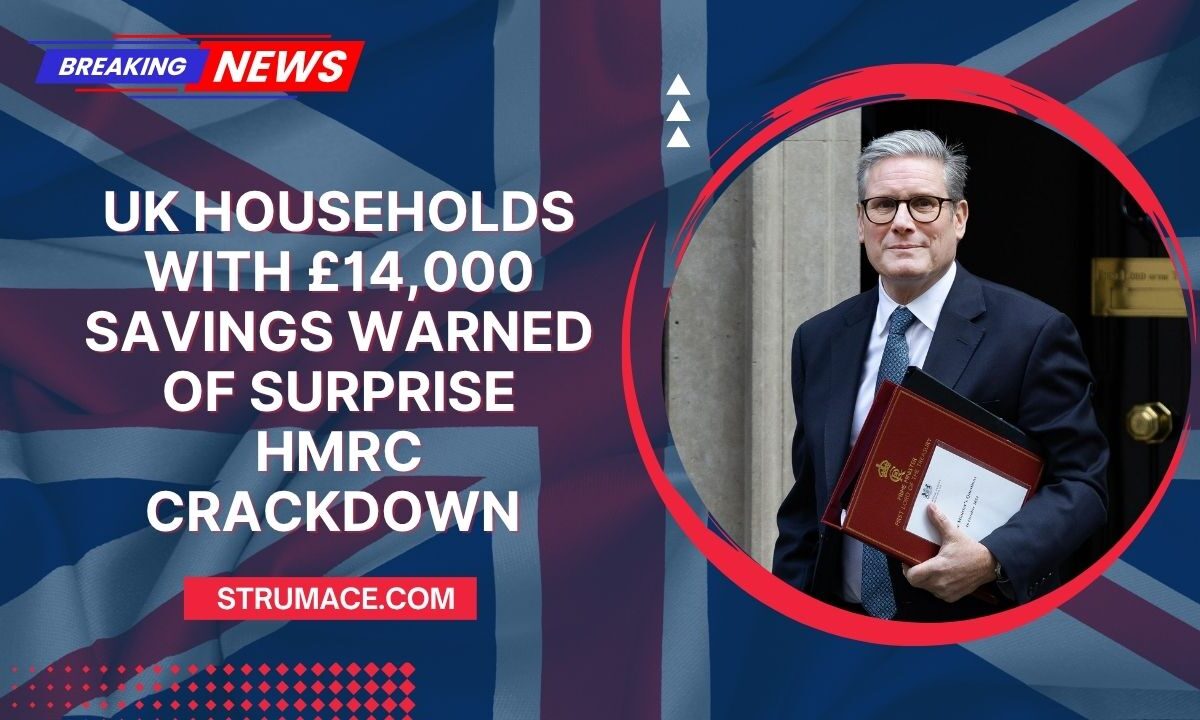With interest rates on savings accounts climbing, UK households with over £14,000 in savings are facing an unexpected tax bill from HMRC, experts have warned. If you’re a higher-rate taxpayer and unaware of recent Personal Savings Allowance (PSA) changes, your savings could fall into the taxman’s crosshairs.
Recent updates from financial experts have brought attention to a growing issue for savers—especially those who are unknowingly earning more interest than their tax-free limit allows.
Let’s break down what this means, how it affects your finances, and most importantly, how to avoid this HMRC tax trap.
Why £14,000 in Savings Could Trigger a Tax Bill
The Personal Savings Allowance (PSA) is the amount of interest you can earn on your savings tax-free. However, this threshold varies depending on your income tax bracket:
| Taxpayer Status | PSA Limit | Interest Tax Rate |
|---|---|---|
| Basic Rate (20%) | £1,000 | 20% on interest above PSA |
| Higher Rate (40%) | £500 | 40% on interest above PSA |
| Additional Rate (45%) | £0 | 45% on all interest |
Currently, the average savings rate is 3.53% AER, according to Moneyfacts. This means:
- A higher-rate taxpayer with £14,200 saved could earn just over £500 in interest, which would be taxable.
- If their interest exceeds the PSA, HMRC will demand tax on the surplus.
This has created concern, especially among those who’ve recently moved into the higher-rate tax bracket, possibly unaware that their PSA was halved from £1,000 to £500.
How AER Plays Into the Tax Equation
AER (Annual Equivalent Rate) represents the actual yearly return on your savings, taking into account compound interest. At a 3.53% AER:
- £14,000 in savings will earn around £494.20 annually.
- £14,500 earns about £512.15—above the £500 PSA for higher-rate taxpayers.
Thus, even modest increases in savings could trigger an unexpected tax liability.
The HMRC Crackdown: What It Means
This isn’t a new policy, but more of a renewed enforcement. HMRC’s systems can now automatically track interest income reported by banks. If your interest exceeds your PSA, you may find a tax bill waiting—without warning.
This is particularly concerning as many UK savers are unaware of the PSA rules and how their tax bracket affects savings.
How to Protect Your Savings from Tax
There are legal and simple ways to avoid falling into this trap:
1. Use a Cash ISA
You can save up to £20,000 per year in a tax-free ISA. Any interest earned in a Cash ISA is not subject to income tax, regardless of your tax bracket.
Some top-paying Cash ISAs offer up to 5% AER, especially when introductory bonuses are factored in.
2. Split Savings Between Partners
Couples can maximize allowances by splitting savings, ensuring neither partner exceeds their PSA. This works especially well if one is a basic rate taxpayer or has unused ISA allowance.
3. Monitor Your Tax Bracket
Keep a close eye on your total taxable income. Moving from basic to higher-rate tax can halve your PSA, significantly increasing your exposure to tax on savings interest.
4. Use NS&I Premium Bonds
Premium Bonds offer tax-free prizes instead of interest. While returns aren’t guaranteed, they avoid PSA restrictions entirely and are backed by the UK government.
Savings Options vs. Tax Implication
| Option | Taxable? | Interest/AER | Pros |
|---|---|---|---|
| Regular Savings Account | Yes | ~3.53% AER | Simple access, competitive rates |
| Cash ISA | No | Up to 5% AER | Fully tax-free interest |
| Premium Bonds (NS&I) | No | Varies (prize-based) | Tax-free, government-backed |
| Fixed-Term ISA | No | 4-5% AER | Higher interest, requires commitment |
Why This Matters Now
With inflation stabilising and interest rates holding steady, more savers are benefiting from improved returns. But without planning, these same returns could cost hundreds in tax.
Consumer expert Adam French warns:
“Savers—particularly higher-rate taxpayers—need to be alert. Even average interest rates now push savings interest past PSA thresholds.”
And with automated reporting from banks to HMRC, it’s no longer safe to assume small savings balances are below the radar.
The new warning is clear: if you have £14,000 or more in savings, and especially if you’re a higher-rate taxpayer, you’re at risk of an unexpected tax bill from HMRC.
Thankfully, by using tools like Cash ISAs, Premium Bonds, and splitting accounts, you can legally protect your interest income from tax.
Stay informed, monitor your savings growth, and take advantage of your ISA allowance. The key is proactive planning—because when it comes to your hard-earned savings, every penny counts.
FAQs
Will HMRC notify me before taxing my savings interest?
No. Interest is reported automatically by banks. HMRC may adjust your tax code or send a bill without prior notice.
Is it better to use a Cash ISA than a regular savings account?
Yes, especially for higher-rate taxpayers. Interest from Cash ISAs is tax-free, regardless of how much you earn.
Do Premium Bonds count towards my PSA?
No. Premium Bond prizes are tax-free and not included in PSA calculations, making them a safe tax-free savings tool.
